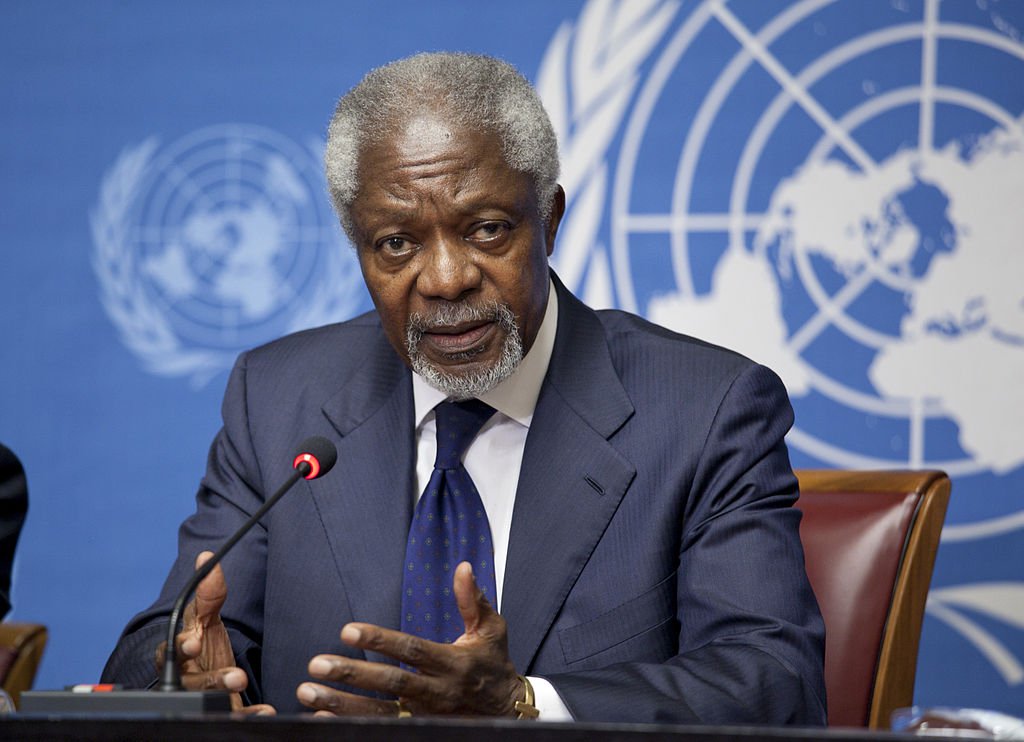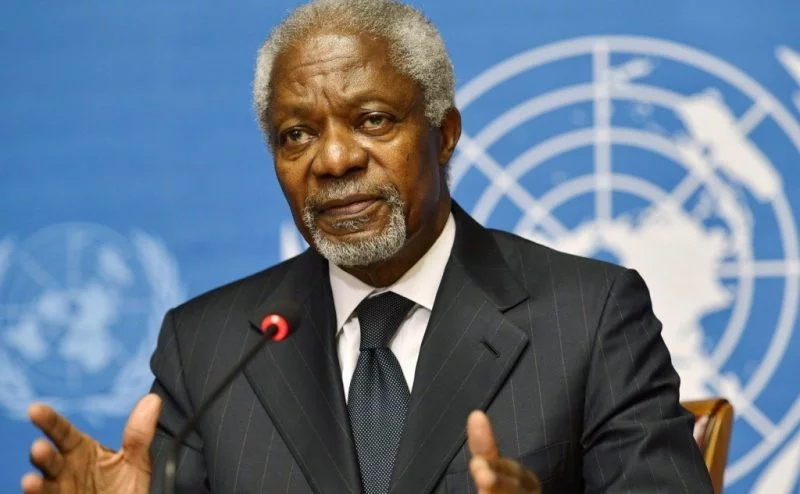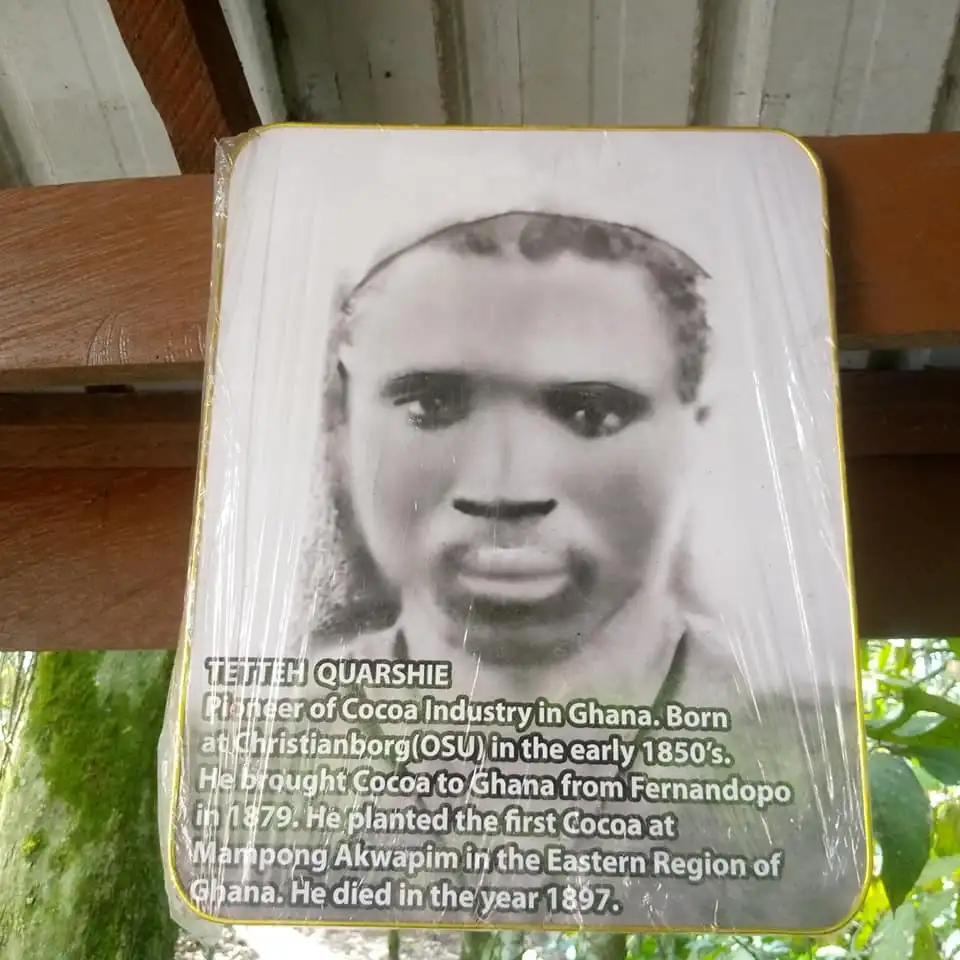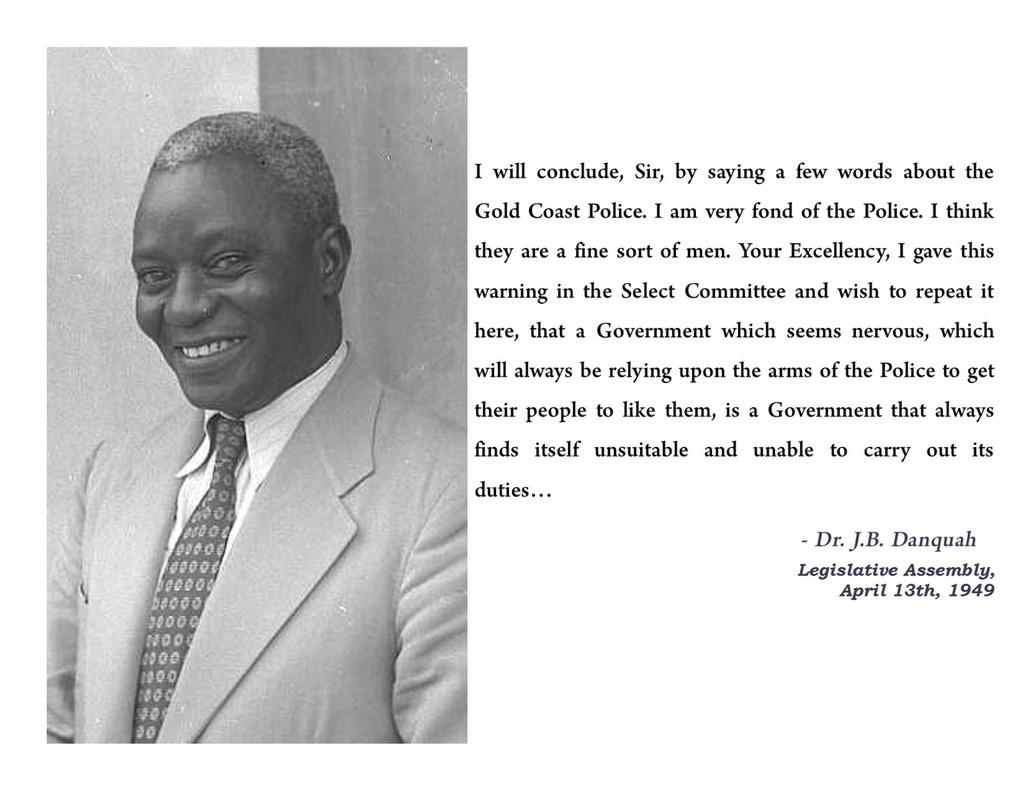Ghanaian Icons: Kofi Annan, Tetteh Quarshie, and Dr. J. B. Danquah
Date of Birth: April 8, 1938
Place of Birth: Kumasi, Gold Coast (now Ghana)
Date of Death: August 18, 2018
Family:
- Father: Henry Reginald Annan
- Mother: Victoria Annan
- Wife: Titi Alakija (married in 1965)
- Children: Kojo and Ama Annan
Education:
- Studied at the elite Mfantsipim School in Cape Coast, Ghana.
- 1957: Enrolled at the Kumasi College of Science and Technology (now Kwame Nkrumah University of Science and Technology).
- 1961: Graduated with a degree in economics from Macalester College in St. Paul, Minnesota, USA.
- 1971: Earned a Master of Science degree in Management from the Massachusetts Institute of Technology (MIT).
Early Career:
- Worked for the United Nations Association of Ghana (UNA-Ghana).
- 1962: Started his career at the United Nations as a budget officer for the World Health Organization (WHO) in Geneva.
- Served in various capacities within the UN, including with the UN Economic Commission for Africa in Addis Ababa and the Emergency Force in the Sinai.
Leadership in the United Nations:
- 1993: Appointed as Under-Secretary-General for Peacekeeping Operations.
- Played a key role in the response to crises in Somalia, Rwanda, and Bosnia.
- 1997: Appointed as the 7th Secretary-General of the United Nations, becoming the first person from sub-Saharan Africa to hold the position.
- Worked on various global issues, including the Iraq War, the HIV/AIDS pandemic, and the Millennium Development Goals.
- Shared the Nobel Peace Prize with the United Nations in 2001.

Post-UN Career:
- Founded the Kofi Annan Foundation in 2007, focusing on peace, development, and human rights.
- Served as the UN-Arab League Joint Special Representative for Syria (2012-2014).
- Chaired the Elders, an independent group of global leaders working together for peace and human rights.
- Engaged in diplomatic efforts and mediation in various global conflicts.

Legacy:
- Remembered as a skilled diplomat and a committed advocate for peace, development, and human rights.
- Contributed significantly to the international community’s understanding of its collective responsibility in addressing global challenges.
- His leadership and legacy continue to inspire future generations of diplomats and leaders.
Kofi Annan passed away on August 18, 2018, leaving behind a legacy of diplomacy, global cooperation, and a commitment to building a better world.
Tetteh Quarshie: Pioneer of Ghana’s Cocoa Industry
Tetteh Quarshie, born in 1842 in Teshie, Accra, played a pivotal role in transforming Ghana’s economy through his introduction of cocoa beans. His contributions marked a significant shift from the dominance of palm oil and rubber to the emergence of cocoa as a staple industry.
Early Life and Training:
Tetteh Quarshie, born to Mlekuboi and Ashong-Fio from the Ga-Dangme ethnic group, began his professional journey as an apprentice in a Blacksmith’s shop at Akropong, owned by the Basel Missionaries. Known for his hard work, he soon became a Master blacksmith, establishing himself as the first blacksmith at Akwapim-Mampong. Beyond his skills in metalwork, he had a keen interest in farming.
Voyage to Fernando Po and Cocoa Introduction:
In 1870, Tetteh Quarshie embarked on a transformative voyage to Fernando Po (Bioko in Equatorial Guinea). His return to Ghana around six years later marked a turning point as he brought back several cocoa beans, specifically the Amelonado variety. This introduction of cocoa was a departure from the prevailing reliance on palm oil and rubber.
Controversy Surrounding Cocoa Introduction:
The question of whether Tetteh Quarshie was genuinely the first to introduce cocoa to Ghana was raised during the administration of Sir Gordon Guggisberg. Claims were made by others, including Sir W. Brandford Griffith and the Basel Missionaries, suggesting earlier experiments with cocoa beans in Ghana.
Sir Gordon Guggisberg’s Investigation:
Governor Sir Gordon Guggisberg conducted a thorough investigation into the various claims. The conclusion emphasized the recognition of Tetteh Quarshie’s role based on several factors, including the acknowledgment by the Gold Coast Government and the credibility of key individuals such as Mr. Gerald C. Dudgeon and Mr. W.S.D. Tudhope.

Cocoa Planting and Expansion:
In 1879, Tetteh Quarshie planted cocoa seeds at Mampong, achieving success in cultivation. He distributed pods to friends and relatives, leading to the expansion of cocoa planting by other farmers. The Basel Missionaries later became involved by importing large quantities of cocoa into the country.
Legacy and Economic Impact:
Tetteh Quarshie’s pioneering efforts laid the foundation for the cocoa industry in Ghana. The export of cocoa commenced in 1891, and by 1893, Ghana officially exported two bags of cocoa. Ghana’s prominence as a major cocoa exporter continued for decades, with the country providing almost half of the world’s cocoa output between 1910 and 1980.
Tetteh Quarshie’s Passing and Commemoration:
Tetteh Quarshie passed away on Christmas Day in 1892. His relatives sought recognition and support from the Gold Coast Government in 1925, leading to the establishment of the Tetteh Quarshie Memorial Scholarship at Achimota College by Sir Gordon Guggisberg. The memorial was further solidified with the construction of Tetteh Quarshie House at Achimota and the naming of the Tetteh Quarshie Memorial Hospital in Mampong-Akwapim.
Tetteh Quarshie’s enduring legacy is reflected not only in the economic impact of Ghana’s cocoa industry but also in the institutions and landmarks named in his honor, serving as a testament to his pivotal role in shaping Ghana’s agricultural landscape.
Tetteh Quarshie, born in 1842 in Teshie, Accra, played a pivotal role in transforming Ghana’s economy through his introduction of cocoa beans. His contributions marked a significant shift from the dominance of palm oil and rubber to the emergence of cocoa as a staple industry.
Early Life and Training:
Tetteh Quarshie, born to Mlekuboi and Ashong-Fio from the Ga-Dangme ethnic group, began his professional journey as an apprentice in a Blacksmith’s shop at Akropong, owned by the Basel Missionaries. Known for his hard work, he soon became a Master blacksmith, establishing himself as the first blacksmith at Akwapim-Mampong. Beyond his skills in metalwork, he had a keen interest in farming.
Voyage to Fernando Po and Cocoa Introduction:
In 1870, Tetteh Quarshie embarked on a transformative voyage to Fernando Po (Bioko in Equatorial Guinea). His return to Ghana around six years later marked a turning point as he brought back several cocoa beans, specifically the Amelonado variety. This introduction of cocoa was a departure from the prevailing reliance on palm oil and rubber.
Controversy Surrounding Cocoa Introduction:
The question of whether Tetteh Quarshie was genuinely the first to introduce cocoa to Ghana was raised during the administration of Sir Gordon Guggisberg. Claims were made by others, including Sir W. Brandford Griffith and the Basel Missionaries, suggesting earlier experiments with cocoa beans in Ghana.
Sir Gordon Guggisberg’s Investigation:
Governor Sir Gordon Guggisberg conducted a thorough investigation into the various claims. The conclusion emphasized the recognition of Tetteh Quarshie’s role based on several factors, including the acknowledgment by the Gold Coast Government and the credibility of key individuals such as Mr. Gerald C. Dudgeon and Mr. W.S.D. Tudhope.

Cocoa Planting and Expansion:
In 1879, Tetteh Quarshie planted cocoa seeds at Mampong, achieving success in cultivation. He distributed pods to friends and relatives, leading to the expansion of cocoa planting by other farmers. The Basel Missionaries later became involved by importing large quantities of cocoa into the country.
Legacy and Economic Impact:
Tetteh Quarshie’s pioneering efforts laid the foundation for the cocoa industry in Ghana. The export of cocoa commenced in 1891, and by 1893, Ghana officially exported two bags of cocoa. Ghana’s prominence as a major cocoa exporter continued for decades, with the country providing almost half of the world’s cocoa output between 1910 and 1980.
Tetteh Quarshie’s Passing and Commemoration:
Tetteh Quarshie passed away on Christmas Day in 1892. His relatives sought recognition and support from the Gold Coast Government in 1925, leading to the establishment of the Tetteh Quarshie Memorial Scholarship at Achimota College by Sir Gordon Guggisberg. The memorial was further solidified with the construction of Tetteh Quarshie House at Achimota and the naming of the Tetteh Quarshie Memorial Hospital in Mampong-Akwapim.
Tetteh Quarshie’s enduring legacy is reflected not only in the economic impact of Ghana’s cocoa industry but also in the institutions and landmarks named in his honor, serving as a testament to his pivotal role in shaping Ghana’s agricultural landscape.
Dr. J. B. Danquah: A Pioneering Nationalist and Political Luminary in Ghana
Dr. Joseph Kwame Kyeretwie Boakye Danquah, born in December 1895 in Bempong, was a towering figure in Ghanaian politics and a key protagonist in the struggle for independence. An erudite scholar, politician, and nationalist, he played a crucial role in shaping the trajectory of Ghana’s history.
Educational Pursuits and Early Activism:
After completing his early education at the Basel Mission School and Basel Mission Senior School, Danquah’s journey into the legal and academic realm commenced. In 1921, he ventured to Britain to study law, overcoming initial challenges to become the first West African to attain a Doctor of Philosophy degree from a British university. His commitment to education and intellectual pursuits laid the foundation for his later endeavors.
Return to Ghana and Legal Practice:
Upon returning to the Gold Coast (Ghana) in 1927, Dr. J. B. Danquah established a private law practice. His legal acumen and dedication contributed to his growing influence within the legal community.
Media Venture and Activism:
In 1931, he founded the “Times of West Africa,” the first daily newspaper in Ghana, providing a platform for the expression of ideas and opinions. Additionally, he played a significant role in the Gold Coast Youth Conference (GCYC) and became its Secretary General from 1937 to 1947.

Political Engagement and Founding of UGCC:
Dr. Danquah actively sought constitutional reforms and, in 1946, became a member of the Legislative Council. He co-founded the United Gold Coast Convention (UGCC) in 1947, a pro-independence party that sought self-government. The UGCC included prominent figures such as Kwame Nkrumah, and Dr. Danquah’s involvement marked a crucial phase in the push for independence.
Detention and Political Rift:
The year 1948 saw Danquah’s detention, alongside Kwame Nkrumah, following riots and protests. However, differences in their visions for the independence movement eventually led to a parting of ways, with Nkrumah forming the Convention People’s Party (CPP).
Presidential Candidacy and Political Persecution:
In 1960, Dr. J. B. Danquah contested the presidential election against Nkrumah but faced defeat, receiving only 10% of the vote. Subsequently, he was arrested in 1961 under the Preventive Detention Act, and despite his release in 1962, he was detained again in 1964 under allegations of plotting against the government.
Legacy and Contributions:
Dr. J. B. Danquah’s contributions to Ghana’s political landscape and intellectual heritage are profound. His advocacy for constitutional reforms, commitment to education, and role in the establishment of the University of Ghana underscore his dedication to nation-building.
Imprisonment and Passing:
Tragically, Dr. J. B. Danquah faced political persecution and suffered a heart attack while in detention at Nsawam Medium Prison, ultimately passing away on February 4, 1965.
Posthumous Recognition:
Following the overthrow of the CPP government in 1966, Danquah received a national funeral, and his status was rehabilitated. Institutions such as the J.B. Danquah Memorial Lecture Series and the Danquah Institute were established to commemorate his contributions.
Dr. J. B. Danquah’s writings, including “Gold Coast: Akan Laws and Customs and the Akim Abuakwa Constitution” and “The Akan Doctrine of God,” continue to be regarded as significant contributions to African intellectual discourse.
The naming of Danquah Circle in Accra and the inauguration of the J.B. Danquah Memorial Lecture Series stand as enduring tributes to a man whose life was dedicated to the pursuit of knowledge, political ideals, and the quest for a free and independent Ghana.
Read More Ghanaian Icons: Theodosia Salome Okoh, Azumah Nelson, and Osagyefo Dr. Kwame Nkrumah
